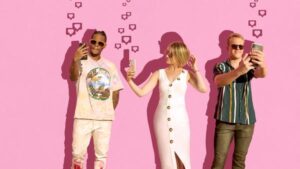
Earlier this month, HBO released a documentary, entitled “Fake Famous,” that dove into the simultaneously deep and shallow world of social media influencers. The hour and a half long documentary featured director Nick Bilton’s search for an answer to a single question: Can he make someone famous?
The documentary follows the journey of three individuals that Bilton and his team cast as their subjects to maximize their online personas and work to break through the threshold of followers, placing them in the renowned category of “influencer.” As the doc progresses, the motif that nothing online is real, becomes increasingly apparent.
Social media often leaves a bad taste in my mouth as I feel the majority of it is now manufactured and mechanical. When I first joined Instagram in 2013, my timeline was full of random posts of people’s every day, unfiltered lives. Now social media platforms are saturated in these perfect and poreless photos of people trying to prove that they live an affluent and happy life.
Research from MediaKix shows that “nearly 90% of marketers say Instagram is the most strategically important social media channel for influencer marketing.” So it’s no surprise that our timelines now are primarily filled with promotional content from users with hundreds of thousands, and often millions of followers.
One of the biggest takeaways that I gathered from the documentary is this generations overwhelming desire to an influencer. Research featured in the documentary showed that while previous generations aspired to be teachers, astronauts, doctors, etc. in their adulthood, a very large number of young millennials and Gen Zer’s aspire to be an influencer or famous.
Since the title “influencer” has come onto the scene, I’ve yet to see a satisfactory answer on what exactly that title entails and what exactly they are influencing us to do. At one point in time you were considered famous for having an admirable skill or talent such as athletic or acting abilities. Now, you can be considered famous simply for having a large following online.
But the kicker to the whole documentary was when Bilton and his team revealed how they were going to make their subjects famous. By simply purchasing bots, all three subjects easily climbed the Instagram follower ladder to the top with thousands of followers in a very short period of time. One of the subjects, Dominique Druckman, reached over 300k Instagram followers, thanks to bots and strategically planned posts. Soon she was receiving offers and gifts for brand deals from all types of companies.
I always knew that online bots existed, but I never stopped to think that a good chunk of influencers and celebrities get such high engagement on their posts thanks to these artificial online users.
I believe that social media is what you make it but because of the state of our online world, I think it’s very easy to inadvertently find yourself sucked into the lie that social media is. Because social media is relatively new, it will be years before we have concrete data on the long-term effects social media has on us as individuals.
“Fake Famous” was a great reminder to not compare my life to what I see online. Simply because it’s probably not even real.